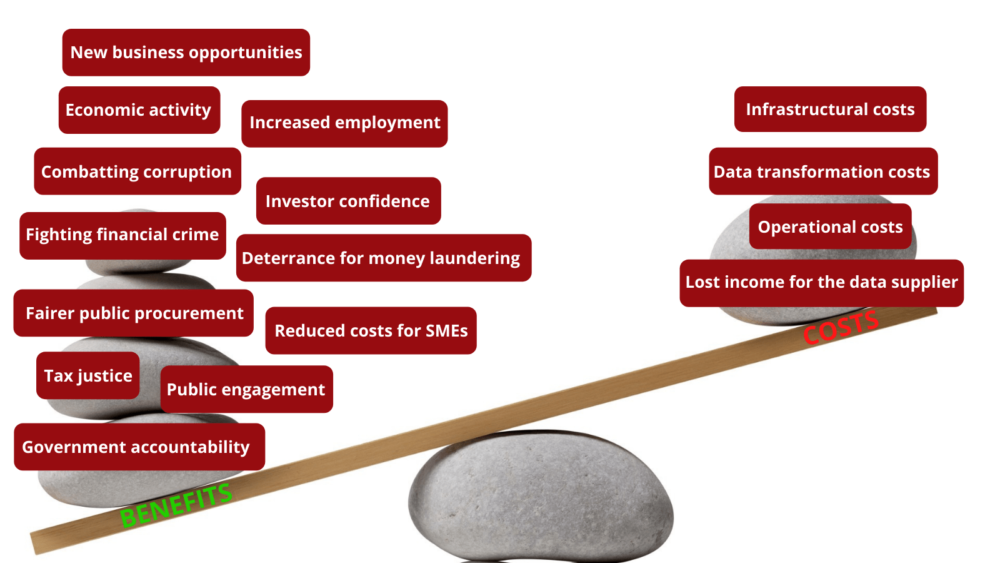Madrid, 3 June 2021- The European Commission is considering going back on the promise of requiring Member States to open company registers because a handful of rich countries – Germany, Italy, and the Netherlands – could lose income from selling this data, Access Info has discovered.
This very concerning revelation about backtracking on transparency comes in a week in which the UN General Assembly Special Session on Corruption has recommended greater transparency of beneficial ownership of companies in its Political Declaration, and a full 30 governments around the world are making commitments on open company data under their Open Government Partnership Action Plans.
The recommendation that EU Member States do not to deliver on the commitment in the 2019 Open Data Directive to fully open company registers is contained in a highly contradictory study – the “Impact Assessment” – prepared for the Commission by consultants in August 2020, and not yet shared with national governments.
Access Info obtained the unpublished Impact Assessment via an access to documents request. This document, which will inform the European Commission’s proposal for the Implementing Act for the Open Data Directive, essentially balances a series of quantifiable economic and social benefits against the cost concerns of a handful of wealthier countries, and fudges a solution by recommending only partial access to company registers.
Rather bizarrely, the recommendation of partial access is undermined by the Impact Assessment’s own text, which regularly recognises the considerable benefits of openness and the necessity, from the reusers’ perspective, of full publication for the economic and societal value of the data to be realised.
Benefits of open company data identified by the Impact Assessment include enhanced transparency of public procurement, easier oversight of financial crime rules, improved public engagement, and increased government accountability.
On a positive note, the Impact Assessment does not identify any serious personal data protection concerns, noting that those with funds can buy this data in any case and not citing any negative consequences in countries which have opened up this data. The study does refer to vague “political sensitivities” (which Access Info believes could be a mix of personal data concerns and pressure on governments from lobbyists) but fails to specify these with any clarity.
Access Info has today published a detailed analysis and which summarises the figures given, including the quantifiable economic benefits of fully open company data:
- Business opportunities worth thousands of millions of euros (in the UK opening the company register created business opportunities for reusers worth an estimated €780 million);
- Significantly reduced time and costs for Europe’s 24 million SMEs both in reporting and in checking ownership of other companies;
- Making it easier to discover and deter money laundering, which, according to Europol, costs the EU almost €200 billion per year;
- Decrease of corruption in public procurement, which costs the EU around 5 billion euro per year.
Balanced against this are the costs of restructuring the registers and loss of revenue, estimated to be €20 million in Germany, €60 million in Italy, and €50 million in the Netherlands. No reliable sources are given in the for these estimations, nor are moves towards openness in Germany in 2021 taken into account.
“The Commission’s study fails to evaluate that, without an upfront investment, Europeans will be deprived of the huge social and economic value of fully-open company registers,” explained Helen Darbishire, Executive Director of Access Info Europe. “This is highly misguided!”
Personal Data Protection is Not an Issue
Access Info has found that the Impact Assessment fails to conduct a proper evaluation of personal data protection concerns (referring to unspecified fears about “misuse” by company registration bodies in France, Italy, the Netherlands, and Malta), notes that those with money can pay for access in any case, and recommends that the European Data Protection Supervisor be consulted, something which has not yet been done by the Commission.
“We are today calling on the European Commission to conduct a proper study of how to mitigate any personal data protection concerns, which would, no doubt, allay the fears as well as demonstrating, once again, the immense importance of having the names of the owners and beneficial owners available to all, not just to those who have the resources to pay for them,” stated Helen Darbishire.
Next Steps: Consultation & Action!
Access Info is today calling on the Commission to be more transparent about the way in which the cost and revenue figures in the Impact Assessment were calculated, and to open a proper debate on the advantages of fully open company ownership information under the Open Data Directive.
A public consultation on the recommendations to be contained in the Open Data Directive is already much-delayed. Access Info is calling for all documents and evaluations held by the European Commission to be made public immediately, including an opinion to be sought from the European Data Protection Supervisor, and to ensure that there is time for Member States and the European public to review these documents before the scheduled month-long public consultation.

